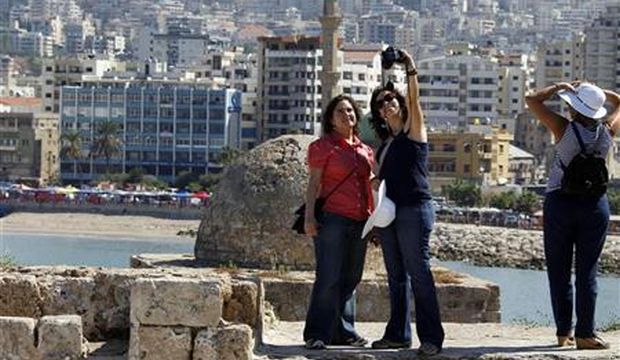“Lebanon is finished!” This was what a Lebanese friend asserted the other day when he dropped in for commiseration. He came out with a litany of woes about Lebanon: inability to choose a president, a parliament prolonging its paralytic life, a Hezbollah serving Iran rather than Lebanon, takfiris trying to carve out mini-emirates, and political elites more focused on making money than solving the nation’s problems.
While all those assertions are valid, at least in part, they cannot sustain the conclusion that Lebanon has become a moribund state.
True, the presidency has been vacant since May. However, let us note that with the 1989 Taif Agreement the presidential system was effectively replaced with a parliamentary one. Today, having no president doesn’t look good, but nor does it do much harm.
At the risk of sounding cynical, one may suggest that having no president may be preferable to having a bad one. Just think of how many presidents Arab nations would rather have done without.
That Lebanon is unable to hold parliamentary elections is certainly lamentable. But no election is better than fraudulent ones, as is the norm in many countries. The prolonged parliament still represents Lebanon’s confessional and political groupings.
The good news is that a paralyzed parliament, while it cannot function as a proper legislature, can’t do much harm either. With the paralysis of the Lebanese state’s political organs the nation has to function on autopilot. In the absence of political meddling, non-political organs, such as courts, the central bank, the bureaucracy, and the army may actually function better.
The weakening of the political apparatus may also create more space for civil society, including the private sector of the economy, mosques and churches, the media, cultural associations, professional syndicates, and trade unions.
In fact, one of the problems that most modern Arab nations have faced is the overwhelming power of the state at the expense of civil society.
One could argue that in contrast with an earlier generation of its leaders, under Sheikh Hassan Nasrallah, the Lebanese branch of Hezbollah has, at times, risked Lebanon’s national interests to help Iran’s ambitions. Nevertheless, there are signs that Nasrallah, a clever politician, is perhaps becoming aware of the fragility of his position. He is beginning to take note of some facts, including the deteriorating situation in Syria, the challenge posed by the Islamic State of Iraq and Syria (ISIS), and the possibility of the mullahs making a deal with Washington.
Nasrallah’s speech at the start of Muharram merits study. There is no space here for detailed analysis of his subtle changes of tone. However, three points need to be made.
First, he sounded shaken by events that have upset his optimistic vision of a triumphant Iran as regional hegemon. Iran’s increasing cash-flow problems, partly due to falling oil prices, have provoked a debate in Tehran about cutting down on financial aid to regional clients, including Hezbollah and Syrian President Bashar Al-Assad.
Nasrallah also implicitly admitted that defeating ISIS and kindred movements cannot be done with slogans of a sectarian nature. He appealed to “our brethren, the Sunni theologians, the majority of Muslims” to take the lead and assume “their great responsibility.”
Hezbollah’s shrinking support base and some loss of sympathy from non-Shi’ite communities that admired the party’s rhetoric against Israel is also bound to force Nasrallah to start thinking more about Lebanon’s national interests.
As for political elites spending more time on business, that, too, need not be bad news. The interregnum may persuade some of them to quit politics and focus on what they know best: making money.
That brings us to the tangibles of the situation.
If they indicate anything it is that Lebanon, far from being “finished,” may be doing better than its neighbors. According to World Bank and International Monetary Fund (IMF) reports, the Lebanese economy will register a growth rate of more than 3 percent this year. That may not sound sensational, but is OK at a time when most other economies, from Mesopotamia to North Africa, are in meltdown mode.
Inflation is down to 1.2 percent, compared to the regional average of 11 percent. Although Lebanon has cut interest rates, capital inflow has increased by 3 percent, and the central bank’s foreign assets have topped 40 billion US dollars, an all-time record. While Lebanon’s public debt of 42 billion dollars is proportionally the second-largest in the world, the country has registered a record trade surplus.
Private bank deposits have increased by almost 12 percent and the national currency has maintained its value while other regional currencies have plummeted. That has enabled Lebanese banks to increase lending by almost 6 percent.
The projected massive drop in the number of tourists has not materialized, with visitors expected to top 1 million this year.
Beirut’s real estate market is booming and real sector indicators, that is to say infrastructural businesses, have risen by almost 10 per cent this year.
An agreement by the G-20 to end banking privacy in 2017 is likely to draw more foreign investors to Lebanon as one of a shrinking number of global tax havens.
Further down the road, Syria, reduced to an archipelago of rubble, would one day be rebuilt. Then, Lebanon would be the base of companies taking part in the rebuilding effort.
Every region needs a Lebanon, especially in times of crisis, a space closed to none and available for dialogue, investment and leisure. In a Europe shaken by endless wars, Switzerland played that role for almost 200 years. In war-torn South America, the role was assumed by Uruguay and in southern Asia by Singapore and Hong Kong. In the Gulf, Dubai has assumed part of that role.
Lebanon still faces many dangers and challenges, not least how to absorb more than a million Syrian refugees.
“But are you ready to put your own money in Lebanon?” my friend asked.
My answer was yes, with one caveat: I have no money to speak of. But that’s another story.
